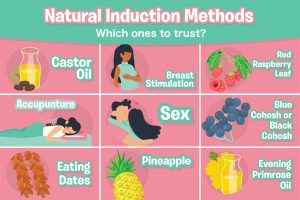Postpartum Depression and Supplements

Postpartum depression can affect a woman’s mental health and well-being, causing her to experience a lack of joy in life, feelings of guilt, and severe mood swings. The condition can take away the opportunity for a new mom to build happy memories with her child.
While medications exist to reduce postpartum depression, some new moms may be wary of taking medicines, especially when they are breastfeeding. Some women may turn to “natural” dietary supplements as a means to treat depression. Several supplements are available that claim to reduce the incidence of postpartum depression. However, they may not be a safe method for reducing symptoms associated with the condition. Women should always speak with their physicians and review all supplements and medications taken to ensure they are safe in the postpartum period, especially when a new mother is breastfeeding.
Postpartum can cause one to lack the happy experience of having a tiny baby and feel the unconditional love from a newborn, consider Nabta’s at-home postpartum physio and depression selfcare pack and have the help you need
Here is a list of some of the commonly recommended supplements:
Fish Oil—A 2011 study from the University of Connecticut School of Nursing found that women who took fish oil supplements during pregnancy experienced fewer symptoms associated with postpartum depression than those who did not. Women were asked to take about 200 milligrams of docosahexanoic acid (DHA), a form of fish oil, once a day beginning in their 24th week of pregnancy until their babies were born. The participants were then asked to fill out survey questionnaires regarding their depression symptoms. The results found women who took the supplements scored six points lower on their postpartum depression scale surveys than women who did not.
Because the study included only 42 women, it was not large enough to be considered fully conclusive. However, researchers do know that low levels of the omega-3 fatty acids found in fish oil are linked with lower levels of the feel-good brain chemicals dopamine and serotonin.
St. John’s Wort (Hypericum perforatum)—St. John’s Wort is an herb that has been utilized to treat depression. While studies have been conducted determining the efficacy of St. John’s Wort in treating mild to moderate depression, none have been specifically directed toward women with postpartum depression. For this reason, it is unknown how taking St. John’s Wort may be passed on to babies via breast milk. Also, St. John’s Wort is metabolized in the liver along the same pathway as many other medications. For this reason, a new mom should always review the medications she is taking with her doctor to ensure adding St. John’s Wort will not affect those medication’s usefulness.
Kava (Piper Methysticum)—Kava extract has been utilized to treat anxiety and insomnia and is associated with producing relaxing effects. However, women who are breastfeeding should not take kava, according to the Journal of Midwifery & Women’s Health. Kava has been known to cause liver problems and should not be taken with other medications, including barbiturates, benzodiazepines, or alcohol because of the liver damage and sedative-like effects these can cause. If you are not breastfeeding and are considering taking kava, speak to your physician first and always review with him or her other medications and supplements you may be taking.
Traditional Chinese Medicine—Chinese medicine or Chinese herbology involves using various herbs to treat conditions including anxiety, sadness, and worry. Chinese medicine practitioners may create a mixture of herbs to treat conditions, including postpartum depression. Because Chinese medicine involves mixing several herbs, new moms, especially breastfeeding moms, may have difficulty knowing exactly what herbs are present. In some instances, metals, including mercury, arsenic, and lead have also been found in Chinese herbs. According to the Journal of Midwifery & Women’s Health, no research exists regarding the effectiveness or safety of Chinese herbs. Also, these formulations may interact with other medications a woman may be taking.
In addition to speaking with your doctor before taking any new supplements, remember that recovering from postpartum depression may take additional interventions, including counseling or medications specifically designed to reduce depression.
Sources:
- American Academy of Family Physicians: Postpartum Depression
American Family Physician: Postpartum Major Depression: Detection and Treatment
American Psychiatric Association: Postpartum Depression
American Psychological Association: What Is Postpartum Depression & Anxiety?
HelpGuide.org: Postpartum Depression and the Baby Blues
Massachusetts General Hospital: Postpartum Psychiatric Disorders
MayoClinic.com: Postpartum Depression
WomensHealth.gov: Depression During and After Pregnancy Fact Sheet
Powered by Bundoo®










